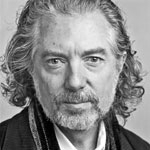 (HOST) Commentator Jay Craven thinks that a much discussed event taking place this weekend in Lake Placid may actually be more about the present – and the future – than the past.
(HOST) Commentator Jay Craven thinks that a much discussed event taking place this weekend in Lake Placid may actually be more about the present – and the future – than the past.
(CRAVEN) Vermont has spent 2009 commemorating the 400th anniversary of Samuel de Champlain’s lake expedition. There is also another regional anniversary this year – the 150 years since legendary abolitionist John Brown staged his unsuccessful raid to free slaves in Harper’s Ferry, Virginia. Impatient with non-violent abolitionists, Brown is quoted as saying, "These men are all talk. What we need is action!"
And it’s action that John Brown took-leading the attack, seizing the federal armory at Harper’s Ferry, and killing seven people. He planned to arm slaves with weapons from the arsenal but his incursion failed. He was convicted of treason and his execution prompted protests from thousands in the North. The song "John Brown’s Body" was composed to the music we know as "The Battle Hymn of the Republic" – and it became a Union marching song.
On the morning of December 2nd, 1859, John Brown read his Bible and wrote a letter to his wife. He was then escorted through a crowd of 2,000 soldiers, among them future Confederate general Stonewall Jackson and John Wilkes Booth, who borrowed a militia uniform to witness his hanging.
Afterwards, Brown’s body was transported north for burial at his farm in North Elba, New York, just outside Lake Placid. En route, Mary Brown and the cortege spent the night in Rutland and on the morning of December 6th they were warmly welcomed in Vergennes where people provided wagons and took them down to Button Bay, where they took a sail ferry across the lake.
This weekend, a symposium on the life and legacy of John Brown will be held in Lake Placid. Details are at JohnBrownComingHome.com. Speakers will examine the realities of pre and post-Civil War America for slaves and for those who sought to end slavery. And they’ll discuss the impact of John Brown’s actions on issues that confront us today, including the ongoing legacy of slavery.
Speakers will include African American historian Margaret Washington, activist Bernadine Dohrn, and writer Russell Banks, whose monumental novel, Cloudsplitter, expands the John Brown narrative.
Maria Suarez is also coming to Lake Placid. At the age of 16, she was sold for 200 dollars into modern slavery in the U.S. Suarez’s story demonstrates a spectacular injustice that is largely hidden – but the U.S. State Department has estimated that 50,000 people, mostly women and children, are brought as slaves into this country each year. And that number is just a fraction of the 27 million estimated to be living in forced conditions worldwide, where poverty and illiteracy create vulnerability.
Frederick Douglas wrote, "John Brown began the war that ended American slavery and made this a free republic."
One hundred fifty years later, that effort continues.